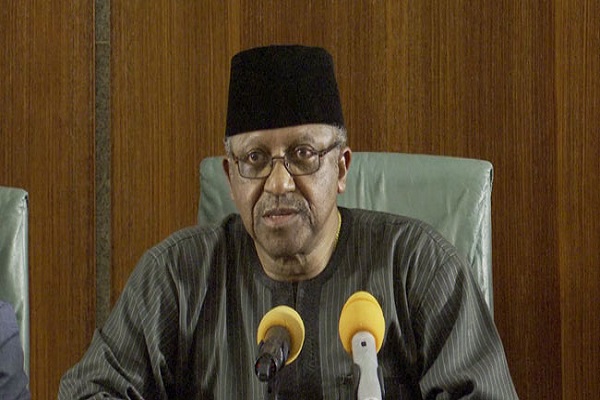Despite the impact of the COVID-19 pandemic on the health sector, the Federal Government (FG) has said the country was experiencing a decline in the prevalence rate of the disease, as recorded in 2015 and 2018 respectively.
Minister of Health, Dr. Osagie Ehanire, made this known during the commemoration of the 2022 World Malaria Day organised by the National Malaria Elimination Programme (NMEP) in Abuja on Tuesday.
The event was held with the theme, ‘Advance Equity, Build Resilience. End Malaria’.
Speaking, Ehanire noted that the prevalence rate dropped from 42% in 2010 to 27% in 2015 and 23% in 2018.
The minister expressed concerns that though malaria was one of the oldest diseases in the country, it was being taken for granted and thus, has continued to be one of the leading causes of death in Nigeria as it continues to wreak havoc silently.
While disclosing an increase in the uptake of treated insecticide mosquito nets, testing and access to malaria care, Ehanire was optimistic Nigeria would be able to further crash the mortality rate to 50 per 1000 live births and the prevalence rate of malaria to less than 10 percent in the next three years.
He said: “In the utilisation of insecticide-treated nets among older five year old has increased from 43.4% in 2015 to 52% in 2018, while that among pregnant women increased from 49% to 58% in 2018. Fever feedback testing among children under five increased from 5% in 2010, to 11% in 2013 and 13% now in 2015 but this is still very low and calls for more efforts to address because not every fever is malaria.
“Nigeria also witnessed a reduction in malaria prevalence from 42% in 2010 to 27% in 2015 and 23% in 2018. That is a good downward trend that we hope will change and we expect that when the result of the 2021 malaria indicator survey is out, we will see a further downward trend in that respect.
READ ALSO: WHO: Malaria remains significant public health threat
“We shall continue to work to ensure that we achieve a parasite prevalence of less than 10% or reduce mortality attributable to malaria to less than 50 deaths per 1000 live births by the year 2025. That is just three years from now and that’s a target we set out in the National Malaria strategic plan of 2021 to 2025.”
The Country Representative World Health Organisation (WHO), Dr. Walter Kazadi Mulombo, however, stated that despite the overall progress made, global trends in malaria cases and mortality rates were plateauing since 2015, particularly in the highest-burden countries.
“The World Malaria Report of 2021 estimated that, 228 million malaria cases and over 600,000 malaria deaths occurred in 2020 within the WHO African Region and, this accounted for 95% of cases and deaths globally,” he said.
While calling on governments to focus on malaria and its devastating impact on families, communities and societal development, Mulombo insisted that the role of innovation in the fight against malaria had become critical not only to reduce the disease burden globally, but also to save lives.
He stated: “It aligns with WHO’s call to urgently scale up innovation and the deployment of new tools in the fight against malaria, while advocating for equitable access to malaria prevention and treatment, within the context of building health system resilience.
“In recent times, there has been a growing political commitment at country, regional and international levels to tackle malaria, and has seen significant breakthroughs in malaria prevention and control, in spite of the COVID-19 pandemic.
“Landmark recommendations on the use of the first vaccine against malaria – RTS, S – were released by WHO late last year. This vaccine will be used to prevent malaria among children aged six months to five years, who live in moderate- to high-transmission settings.
“While this is a groundbreaking advancement in the development of new tools to fight this disease, with the potential to save millions of lives, supplies are currently limited. As such, it is important to ensure that the doses that are available are utilized for maximum impact, while ensuring continued availability of other preventive measures to those most at risk.”
- Makinde cancels birthday celebrations over Ibadan funfair stampede - December 21, 2024
- Court sends woman to prison for cursing Seyi Tinubu, IGP - December 21, 2024
- OrderPaper founder, Oke Epia, appointed to global parliamentary group - December 20, 2024










